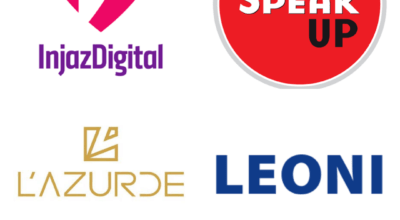According to Egyptian labor law, article #69, point no.7 states that “a worker shall be immediately discharged if they were found under the influence of an intoxicating substance during their working hours.”
Drug addiction is not limited to a certain socioeconomic class. You can find one of your finest and most dedicated employees trapped inside this ugly catch. Of course, the cost of having drug addicts in large or small businesses is absolutely damaging. It goes without saying that drug addicts are more likely to make mistakes, miss work, hurt themselves or get into conflicts with their co-workers and managers.
But shouldn’t addiction be treated like any other disease that deserves our understanding and compassion? According to Drug Abuse, “Addiction is a chronic, often relapsing brain disease that causes compulsive drug-seeking and use, despite harmful consequences to the addicted individual and to those around him or her.” Don’t you think that addicts already feel like they are outcasts that need our support, rather than our utter condemnation? Taking a punitive approach and giving an employee a pink slip is not a solution, yet it has so many implications on them, their families and their chance to ever get better. So why don’t businesses whether start treating addicts as part of their corporate social responsibility (CSR)?
Luckily, I had the chance to sit down with a female Egyptian regional HR manager at a well-known German multi-national company, who is to be considered one of the pioneers in actually redefining the norm in this matter. Unfortunately, neither the company’s name nor hers – as per her request — will be mentioned due to the fact that such a topic still remains a taboo at the workplace.
What did you do when you found out that you had a drug addict in your company?
I froze. I didn’t want to take any irrational decisions until I thought it through. The law gives me every right to immediately fire him, but I just couldn’t. After all we’re called the Human Resources department. Human! Most of us, however, tend to forget about that. Not only did I want to keep his job, but I wanted us to treat him as well. He, just like everyone else, deserves a second chance.
What made you do this?
I thought throwing him out of the company’s doors will keep the problem away from the company, but definitely not away from our society. I believe that we have a social responsibility towards not only the employees, but their families and our society as well. The punishment of firing an employee for taking drugs means that he has no other place to work for and no one will ever accept him anymore. In addition, this will damage and ruin his family entirely whether financially, reputationally, psychologically, etc. Besides we are adding more problems to society rather than resolving them, don’t you think?
Do you think that this was the ultimate solution for such a case?
I believe there is a positive way in solving all problems. I do have concerns on how we, as a society, are handling this problem. The whole society is handling this problem negatively. The labor law sets drugged employees to be fired. The health insurance hospitals do not support drug treatment. The private health insurance does not cover drug treatment. The companies trap their employees in drug tests to find out who is taking drugs and fire them. In other words, we are treating the problem through punishment which will never solve it.
What if he relapsed? Did you think of that?
Of course, I did, but I took this decision on solid grounds; it wasn’t just a reckless emotional response. I required him to pay along with the company for his treatment and made him sign a social insurance form # 6 in case he didn’t entirely quit after all of this. Yes, I give second chances, but I am not stupid!




























